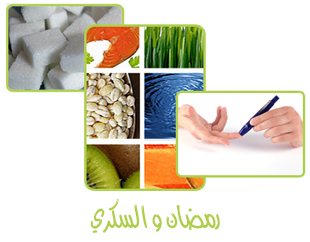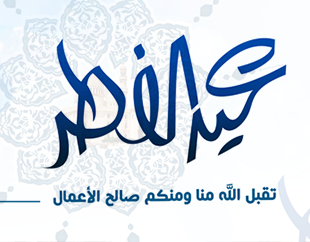
In normal days, diabetics get used to special dietary programs and certain treatments. With the holy month of Ramadan, the situation changes considerably due to the changing times and numbers of meals and the time difference between them. Therefore, diabetics have to take in consideration these changes, and adapt to this new situation by following healthy and scientific methods under the supervision of doctors.
Types of diabetes:
Diabetes is a chronic disease that can be controlled with treatment and diet, there are two types:
- Type 1 needs insulin injections, and does not allow most people to fast because of their need to take two doses of insulin or more daily, and eat food immediately after each injection. Therefore, consulting a doctor is advised in order to determine their ability to fast or not.
- Type 2 does not require insulin injections, is less harmful compared to type I, and it can be managed with tablets taken orally that stimulate the pancreas and lead to sufficient insulin secretion to fulfill the needs of diabetics, so they can have normal daily activities during fasting. Most diabetics with type 2 benefit from fasting if they organize meals between Iftaar and Suhoor.
Acts allowed by diabetics during fasting:
Type 2 diabetics are allowed to fast, but they should deal cautiously with medicines’ doses, pay attention to the amount of food consumed at every meal and ensure the regularity in terms of quantity and quality. Three meals at equal intervals between Iftaar and Suhoor are needed with less physical effort during the fasting period.
Contraindications of fasting for diabetics:
Type I diabetics should not fast, because it’s dangerous for their health, and if the patient insists to fast, he must see a doctor to check his blood sugar levels two months before Ramadan. In some cases, the diabetic is not allowed to fast at all because his life is at risk, especially when the level of blood sugar is irregular. Children, pregnant women, diabetics who suffer from other diseases (such as renal failure, coronary and heart failure, severe infections and other chronic diseases) are not allowed to fast.
Complications of fasting on diabetics:
If the diabetic insists on fasting without the doctor’s permission, and without taking precautions concerning drugs and food, he will be potentially exposed to lots of health problems which could lead to death, Allah forbid. In this case, the patient can be exposed to the following complications:
Low blood sugar:
Blood sugar level may drop drastically if the patient neglects to take Suhoor, and adequate drugs, or if he exhausts himself while fasting. In this case, many symptoms appear on the patient like: intense hunger, tiredness, dizziness, sweating, and fast heartbeat. The patient might face hypoglycemic-coma which is life-threatening, Allah forbid.
High blood sugar:
High blood-sugar occurs when the patient changes the dosage and timings of medicines without consulting a physician, or as a result of a disturbed diet between Iftaar and Suhoor, it also occurs due to lack of physical activity, or sedentary lifestyle.
Diabetic Ketoacidosis:
Diabetic Ketoacidosis happens in patients with type I diabetes during fasting due to sudden hypoglycemia, when the patient neglects insulin injections, neglects healthy diet, and reduces physical activity.
Dehydration and strokes:
Dehydration occurs when blood glucose level rises, which obliges the patient to urinate frequently, and thus lose a lot of fluids in a short time without having the ability to compensate by drinking water during the fast, which leads to dehydration, and high blood viscosity, consequently the diabetic becomes prone to stroke.
Tips for diabetics In Ramadan:
Diabetics are advised to consult physicians before fasting and when abnormal symptoms occur. Between Iftaar and Suhoor, they should drink fluids sufficiently, avoid sweets and fats and check blood sugar regularly. Remember, Islam is a religion of ease and Allah does not burden a soul beyond that it can bear.
Written by: Amine Hilal






Comments